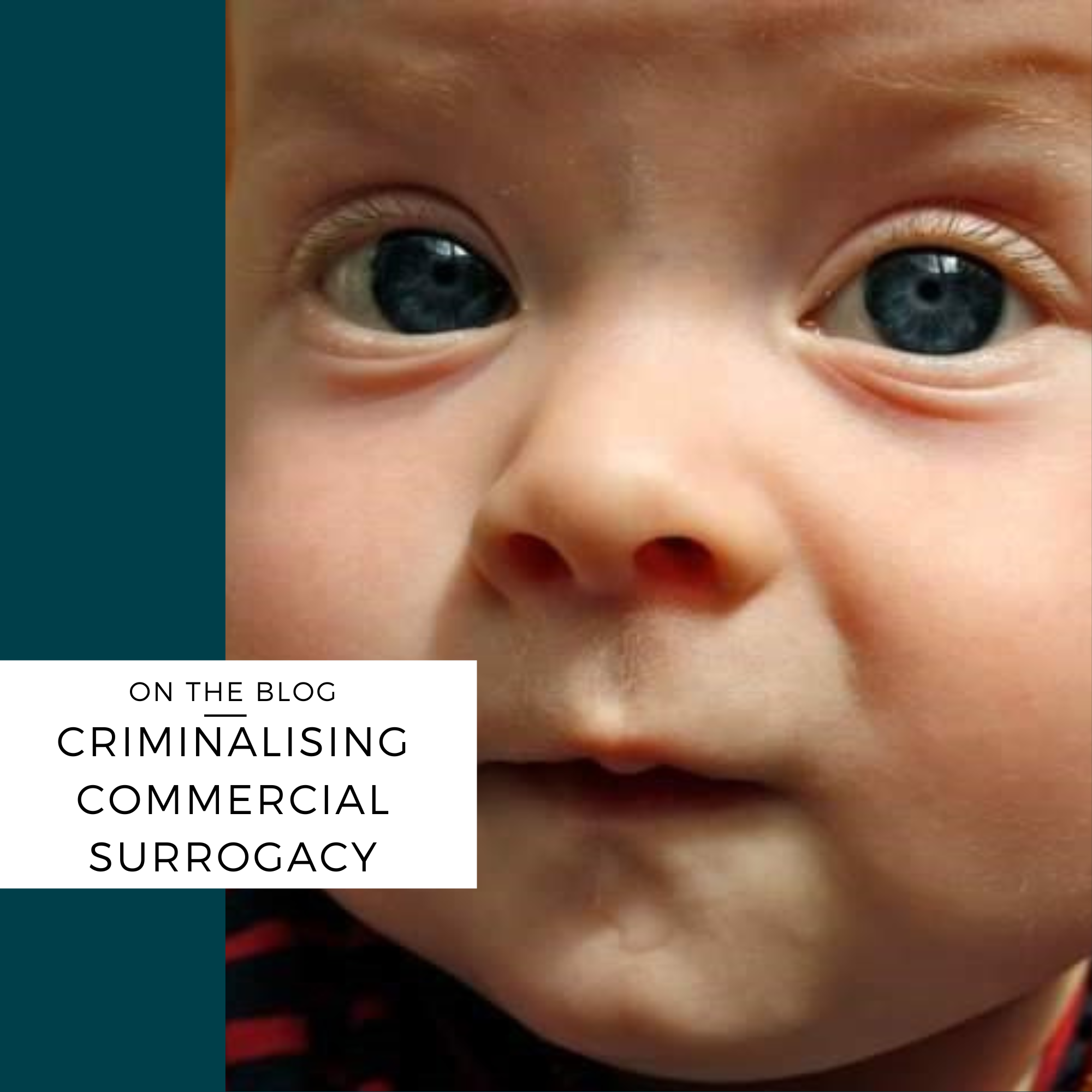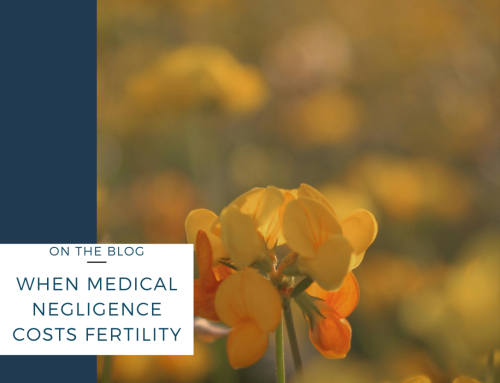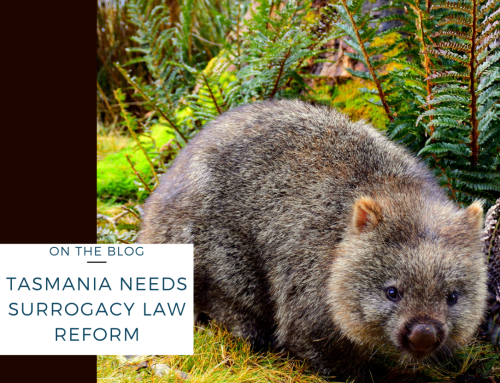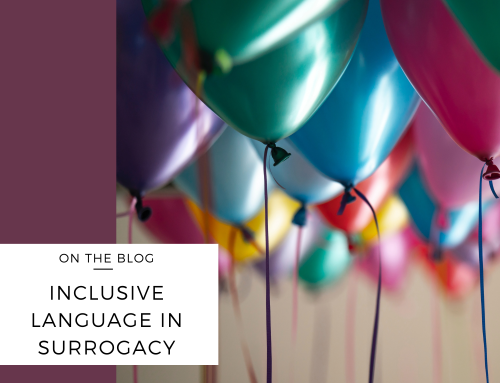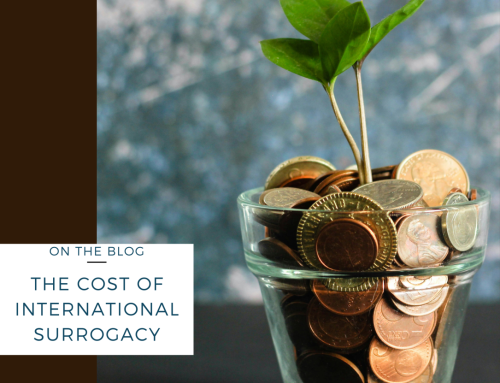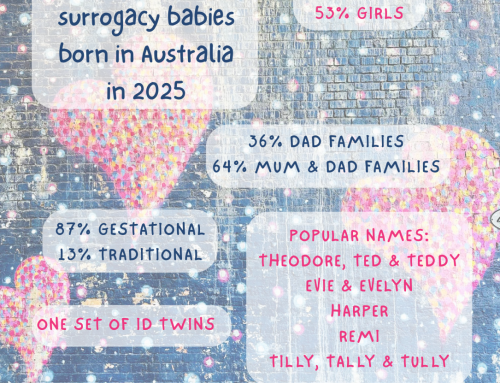Consequences of criminalising commercial surrogacy
The case of Lloyd & Compton [2025] FedCFamC1F 28 has once again illustrated the need for surrogacy law reform that prioritises the best interests of the children born.
In Lloyd, the intended parents were a Queensland couple who engaged in commercial surrogacy overseas. The Surrogacy Act prohibits Queensland residents from entering a commercial surrogacy arrangement, including where the arrangement occurs overseas.
The Lloyds engaged a New South Wales law firm, Sun Legal, for assistance with returning to Australia with their child. For reasons that remain unclear, Sun Legal applied to the Federal Circuit and Family Court of Australia for parenting orders on behalf of the intended parents. This is not a process I would have advised, for several reasons:
- Parenting orders are used in custody disputes between separated couples. Proceedings can take several years.
- Parenting orders do not transfer parentage from the birth parents to the intended parents
- Parenting proceedings may be the inappropriate forum for intended parents to adequately parent their child. To this end, I usually suggest the parents update their wills and ensure their estate planning is in order and obtain legal advice from a qualified surrogacy lawyer.
- Swearing an affidavit of having entered a commercial surrogacy arrangement – which is illegal – opens the parties up to scrutiny and possible referral to authorities. This is what occurred in the case of Lloyd & Compton.
In the circumstances, the Lloyds would have benefited from advice from a qualified surrogacy lawyer with experience in this area.
Have parents been prosecuted for engaging in commercial surrogacy?
No. While other parents have been referred to authorities, there have been no prosecutions for engaging in international commercial surrogacy. However, the case of Seto & Poon involved commercial surrogacy within Australia and those parties were also referred to the authorities.
Other people have engaged in international commercial surrogacy. Why haven’t there been any prosecutions before now?
This question goes to the heart of why the laws are ineffective, inappropriate and contra to the rights of the children born.
It is true that over 300 children are born via international surrogacy each year and most of their parents have engaged in commercial surrogacy. While the laws might deter some intended parents, overall they are clearly not effective.
When intended parents engage in surrogacy overseas, the potential outcome is a child born. That child has rights, including to citizenship, family, privacy, identity, parentage, access to healthcare, education and social services – and to be treated equally. If their parents – their primary carers, the people taking responsibility for them and who intentionally and lovingly welcomed them into the world – are held criminally responsible for having them, this goes entirely against that child’s best interests.
The police and prosecutors likely recognise this. Judges also recognise this. Surely one thing that undermines the best interests of the child is having their parents criminalised for their existence.
There may be other reasons why prosecutions have not proceeded, including the statute of limitations, and resourcing and priorities of the DPP.
While criminalising commercial surrogacy makes sense from a public policy perspective – that it’s meant to be a deterrent – in reality it is ineffective and contra to the rights of the child.
Meanwhile, we should be decriminalising international commercial surrogacy and regulating the industry that profits from surrogacy.
Are we at risk of being prosecuted?
Intended parents need to get independent and individualised legal advice from an experienced surrogacy lawyer about their particular circumstances. Many intended parents do engage in commercial surrogacy overseas, and have done for many years. Doing so can have consequences for parentage, employment, parental leave, estate planning and criminal prosecution. There have not yet been any prosecutions in any state, but some parents have faced investigation.
So what happens now?
The Queensland Director of Public Prosecutions received a request to investigate the Lloyds. It was up to the DPP whether they proceed with an investigation and/or decide to prosecute, but in June 2025 they announced that no charges would be laid. If they had prosecuted, the intended parents may have faced up to 3 years in prison.
The lawyer from Sun Legal was referred to the NSW Legal Services Commissioner for consideration about whether they have fulfilled their obligations as a legal advisor.
Should we remove the prohibition against commercial surrogacy?
Yes. Nothing is gained by criminalising parents for engaging in commercial surrogacy overseas. The children born should be treated equally and under current laws, they are not.
The Australian Law Reform Commission is reviewing Australia’s surrogacy laws and this aspect will be considered in the review.
And should we allow commercial surrogacy within Australia?
I think it’s time that Australian surrogates are compensated for our time, effort and risks. This could be one way to make surrogacy more accessible within Australia, which in turn may reduce the number of intended parents heading overseas where surrogacy may be risky to them, the surrogate and to the child.
I think it’s time that Australian surrogates were paid.
.
You can find more information in the free Surrogacy Handbook, reading articles in the Blog, by listening to more episodes of the Surrogacy Podcast. You can also book in for a consult with me below, and check out the legal services I provide.

